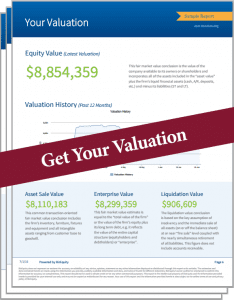 For every entrepreneur, a smooth transition of business ownership will be of importance at some future point. The Buy Sell Agreement deals with a specific exit strategy case. An agreement by and between business owners, it establishes a mechanism for the purchase of ownership interests following the departure of an owner due to a triggering event (i.e., death, divorce, disability, retirement, etc.).
For every entrepreneur, a smooth transition of business ownership will be of importance at some future point. The Buy Sell Agreement deals with a specific exit strategy case. An agreement by and between business owners, it establishes a mechanism for the purchase of ownership interests following the departure of an owner due to a triggering event (i.e., death, divorce, disability, retirement, etc.).
The primary purpose of a buy-sell agreement is to maintain ownership and operations within the existing management/ownership group; avoid interference from the exiting owner’s family; provide liquidity to pay estate taxes/retirement; avoid disputes with the exiting owner’s family regarding succession and value; and provide for a smooth transition to the next generation.
The two most common types of buy-sell agreements include:
- Cross-Purchase Agreement: Agreements where the remaining owners buy out the interest of the withdrawing owners.
- Entity-Purchase Agreement: Agreements where the company buys out the interest of the withdrawing owners.
Once the type of buy-sell agreement has been determined, the next step is to determine the valuation mechanism to be included in the buy-sell agreement. While there are a variety of valuation mechanisms to choose from, the following three mechanisms are most often utilized:
- Fixed Price Agreement: The price of future purchases are set at a specific dollar amount by stating a value for the equity of the company.
Advantages: All owners agree to a price and know what the buy-sell price will be.
Disadvantages: (1) The fixed price becomes outdated due the constant evolution of a business; (2) Owners seldom know the true value of a business and set unrealistic prices; and (3) Different triggering events may cause different values (i.e., death of an owner, retirement of an owner, removal of an owner, etc.). - Formula Agreement: Establish value by providing a specific formula based on a multiple of the company’s operations.
Advantages: Once the formula is selected, the specific calculations necessary to determine the buy-sell price are known.
Disadvantages: (1) No formula selected at a given time can provide reasonable and realistic valuations over time; and (2) Depending on the timing of the triggering event, the value of the interest may be unrealistic. - Business Valuation Agreement: Outlines a process by which future transactions will be priced (i.e., they define the valuation process). These agreements call upon the use of one or more business appraisers to determining the price at which contemplated future transactions will occur.

Advantages: (1) Provide a defined structure or process for determining the price at which future transactions will occur; (2) All parties agree what the process will entail; (3) Owners obtain a qualified independent expert opinion rather than determining the value themselves; and (4) Attorneys are familiar with the business valuation process.
Disadvantages: (1) The price is not determined now; (2) Can become costly; (3) Uncertainty over final value in the process can be stressful; (4) Owner uncertainty over what will happen when a triggering event occurs.
Based on the above, it is strongly suggested that owners consider the use of a business valuation as the appropriate valuation mechanism within the buy-sell agreement. Due to the complex nature and importance of selecting the appropriate type of buy-sell agreement and valuation mechanism, it is strongly recommended that legal counsel be engaged to assist in the process of selling a business.













Hello,
Question: If several Partners participate in a partnership agreement, each with different percentages of ownership, and a Partner leaves or retires, what is the most common way to distribute the Ownership percentage of the departing Partner to the remaining Partners?
Thank you.
Hi Greg,
The most common (and proper) way to do so is according to the Partnership Agreement the partners signed when the partnership was formed.
Look to that document first.
All the best…